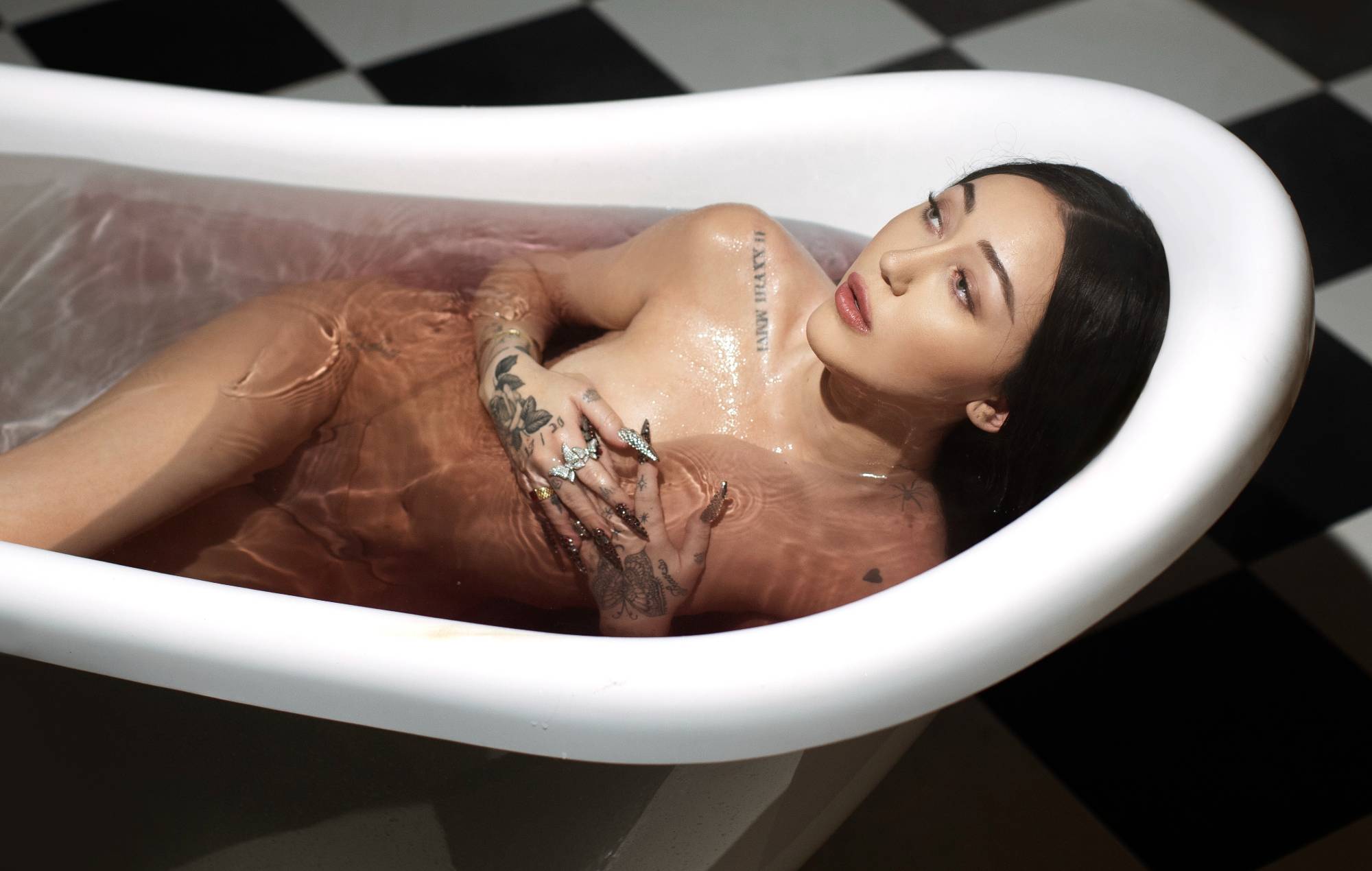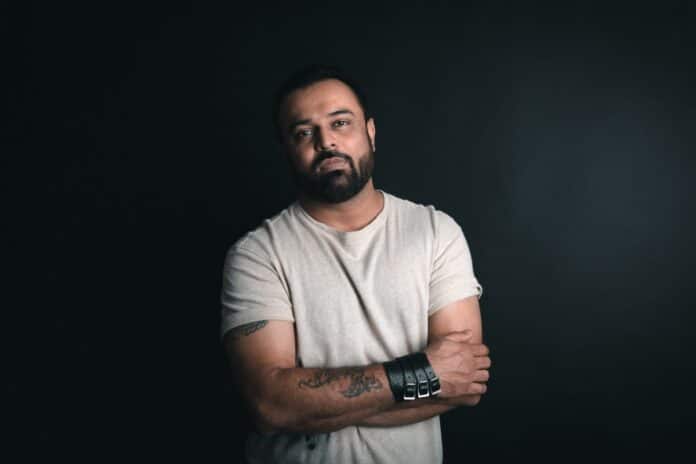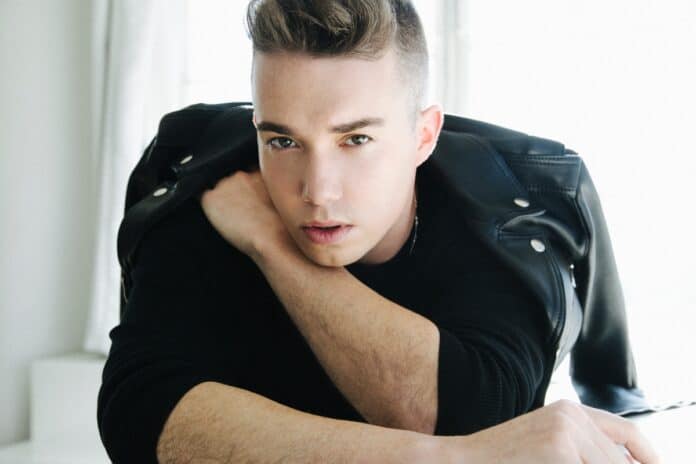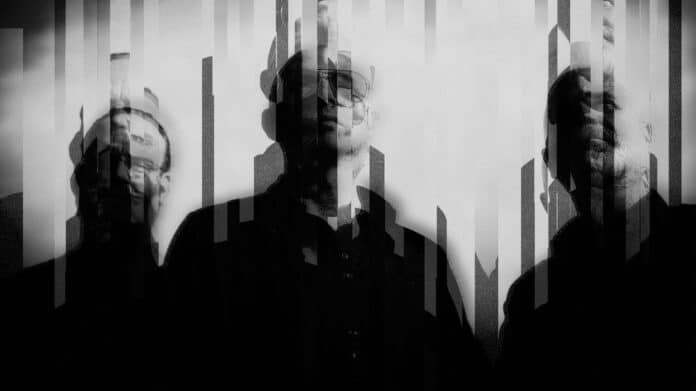
Noah Cyrus: “I can’t believe I put out my first song when I was 16 – what was I thinking?”
Listening to PJ Harding and Noah Cyrus’s collaborative EP, ‘People Don’t Change’, is definitely an evocative experience. It makes you feel like you’ve wandered into a Nashville dive bar where a super-accomplished country duo are pouring their hearts out on a tiny corner-stage. “You smell expensive but I know it’s rented / Boys can be poison and still be rose-scented,” Cyrus sings on ‘Cannonball’, a wistful country waltz that typifies the music’s intimate, Southern-fried style.
- READ MORE: PJ Harding & Noah Cyrus – ‘People Don’t Change’ EP: country clan’s youngest star breaks out
This intimacy is all the more impressive when you consider they were 8,000 miles apart for much of the creative process. Soon after they wrote ‘Dear August’, the sweetly optimistic song that really got the ball rolling, Harding decamped to his native Australia while Cyrus remained in California. Subsequent sessions took place over Zoom, a piece of technology that made many of us self-conscious as the pandemic dragged on, but Cyrus says they had no real problem reigniting their creative spark.
“We’d write the verse line by line, and then we’d do the same with the chorus,” she recalls, likening the process to writing a book. Harding became not only her closest collaborator, but also an emotional pillar. “I lost my grandma August 19th and our first session was September 1st,” Cyrus tells NME. “So I think you can imagine how much this EP was there for me and how much time I spent talking on the phone to PJ, crying on the phone to PJ, just as a friend.” Though they made Zoom work for them, Cyrus says she can’t wait to create with him in person: “I really do think this [process] will have almost built muscle memory for when we’re in the room together again.”
Cyrus, daughter of country icon Billy Ray and sister of genre-hopping cultural disruptor Miley, has displayed plenty of range since she launched her recording career five years ago. After impressing with her debut single ‘Make Me (Cry)’, an electro-pop duet with Labrinth, she has released everything from self-lacerating trap (‘fuckyounoah’) to bolshy industrial pop (‘Again’). ‘All Falls Down’, her thumping EDM collaboration with DJ Alan Walker, has racked up 433 million Spotify streams. She first worked with Harding on 2020’s excellent ‘The End of Everything’ EP, a definite step up which incorporated country and gospel into her woozy pop-R&B sound. Earlier this year she was nominated for Best New Artist at the Grammys, an accolade that acknowledged her growing confidence as an artist, but lost out to Megan Thee Stallion.
‘People Don’t Change’, a stripped-down blend of country, folk and Americana, is a roots move that really suits the Nashville-born artist. “I can’t believe I put out my first song when I was 16 – what was I thinking?” she says today with a wry laugh. “Five years of doing this is a long time, but I do feel like I’ve found my most comfortable place to create from, which is definitely a raw perspective.” Cyrus says she now starts every song on guitar or piano, and prefers to go easy on the production sheen. “When I start not liking the production on a song, it’s usually because it’s straying too far from the way I wrote it, and I wrote it that way for a reason,” she explains.
Cyrus admits that figuring this out has been a learning curve. “Because I started really young, I had ideas about who I wanted to be, or who I thought I was at 16, that are not what I want to be now,” she says. Cyrus says this situation is difficult for any young artist, but was exacerbated for her because “there were a lot of things that people told me to be and wanted me to be”. Though she doesn’t say so herself, Cyrus’s famous surname must sometimes have got in the way. When I ask what she wants people to think when they hear the name ‘Noah Cyrus’, she replies candidly: “I’m so tired of people having first thoughts about me that I think I just want them to hear me and listen. It would be kind of nice for people not to have a preconceived idea of me.”
Seven years younger than Miley, Cyrus grew up surrounded by the Hannah Montana phenomenon; she even guest-starred in several episodes of the show. Her own fame exploded after she launched her music career in 2016, but she became a target for internet trolls several years earlier. Hitting back on Twitter in May 2020, she wrote: “i am v aware theres a lot of you who dont like me or the way i look. you guys have made it very clear since i was probably younger than 12.”
Today, she says the struggle to reconcile cruel public scrutiny with her mental health led to her taking a break after she toured 2018’s ‘Good Cry’ EP. “I had gotten out of a very public thing: a relationship that was swarmed by the media,” she explains, referring obliquely to her breakup from rapper Lil Xan. “And it was not fun. And that was really hard on my mental state. Like, just feeling like you would spend time with somebody who never even wanted to be around you.”
“I’m still getting comfortable with me, because I haven’t been that connected with myself before”
Cyrus is a fast talker, but at this point she allows herself a cautious pause. “That’s a whole other conversation,” she says. “But I was 18 and it was clear I needed to take a step back and work on my mental health because at that time no one was putting it forward.” So at her mum’s suggestion, she took some time to “get the help that I need and I deserve” from her therapist and psychiatrist.
Nearly three years later, Cyrus believes being able to channel her experiences of anxiety and depression into something positive is her “superpower”. “This sounds very vague, but it’s genuine,” she says, “but a whole world has seen me grow up, and if I can help that world by speaking about my mental health and what it was like, for example, growing up with body dysmorphia, then I want to do that.”
Cyrus certainly isn’t a sugar-coater: today she says her mental health has been in “such bad places” that she “really thought it was going to ruin my life”. She credits therapy with helping to pull her out, but says the most important step was having “that initial conversation” about how she was feeling. “I feel like I’m in this vast world alone sometimes, but nobody is,” she says. “That conversation is always there to be had with somebody, even if it means calling a [mental health] hotline. I’ve found myself doing that a few times, and I can say it genuinely does help. They’re there to help you.”

Cyrus is equally realistic about her personal and creative evolution. “You know, I feel like I’m still discovering me,” she says. “I’m still getting comfortable with me, because I haven’t been that connected with myself before.” And this process has, in turn, boosted her confidence: “That’s why I’m able to speak up about how I’m feeling more than ever now. I can be open and honest about my art – without hesitation. And I’m finding it’s just easier for me to breathe that way.”




